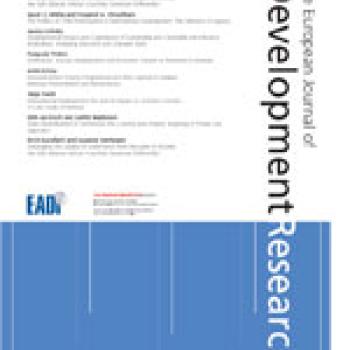
Analysis of quantitative and qualitative data of a pro-poor sample of Ethiopian children provides a more nuanced understanding of the role of children in the household economy. Children's work is largely shaped by age and gender; however, our results reveal considerable flexibility within these same structures according to household composition, birth order and sibling composition. We find that exceptions (whereby girls or boys are undertaking work normally associated with the other sex or another household member) are affected by household composition, but driven by intergenerational interdependence. Further, these exceptions are not random; children's work is affected less by poverty than by dynamic household circumstances. Given changes in the composition of poor households and absence of adequate social safety nets in a context of high risk and uncertainty, interdependence serves as a protective mechanism for poor households.
Keywords: Ethiopia; children's work; interdependence; gender; intra-household distribution; household economy
The final published version of the article is available on the journal website.
Reference:
Karin Heissler and Catherine Porter (2013) Know Your Place: Ethiopian Children’s Contributions to the Household Economy’, European Journal of Development Research 25.4: 600-620

Analysis of quantitative and qualitative data of a pro-poor sample of Ethiopian children provides a more nuanced understanding of the role of children in the household economy. Children's work is largely shaped by age and gender; however, our results reveal considerable flexibility within these same structures according to household composition, birth order and sibling composition. We find that exceptions (whereby girls or boys are undertaking work normally associated with the other sex or another household member) are affected by household composition, but driven by intergenerational interdependence. Further, these exceptions are not random; children's work is affected less by poverty than by dynamic household circumstances. Given changes in the composition of poor households and absence of adequate social safety nets in a context of high risk and uncertainty, interdependence serves as a protective mechanism for poor households.
Keywords: Ethiopia; children's work; interdependence; gender; intra-household distribution; household economy
The final published version of the article is available on the journal website.
Reference:
Karin Heissler and Catherine Porter (2013) Know Your Place: Ethiopian Children’s Contributions to the Household Economy’, European Journal of Development Research 25.4: 600-620

